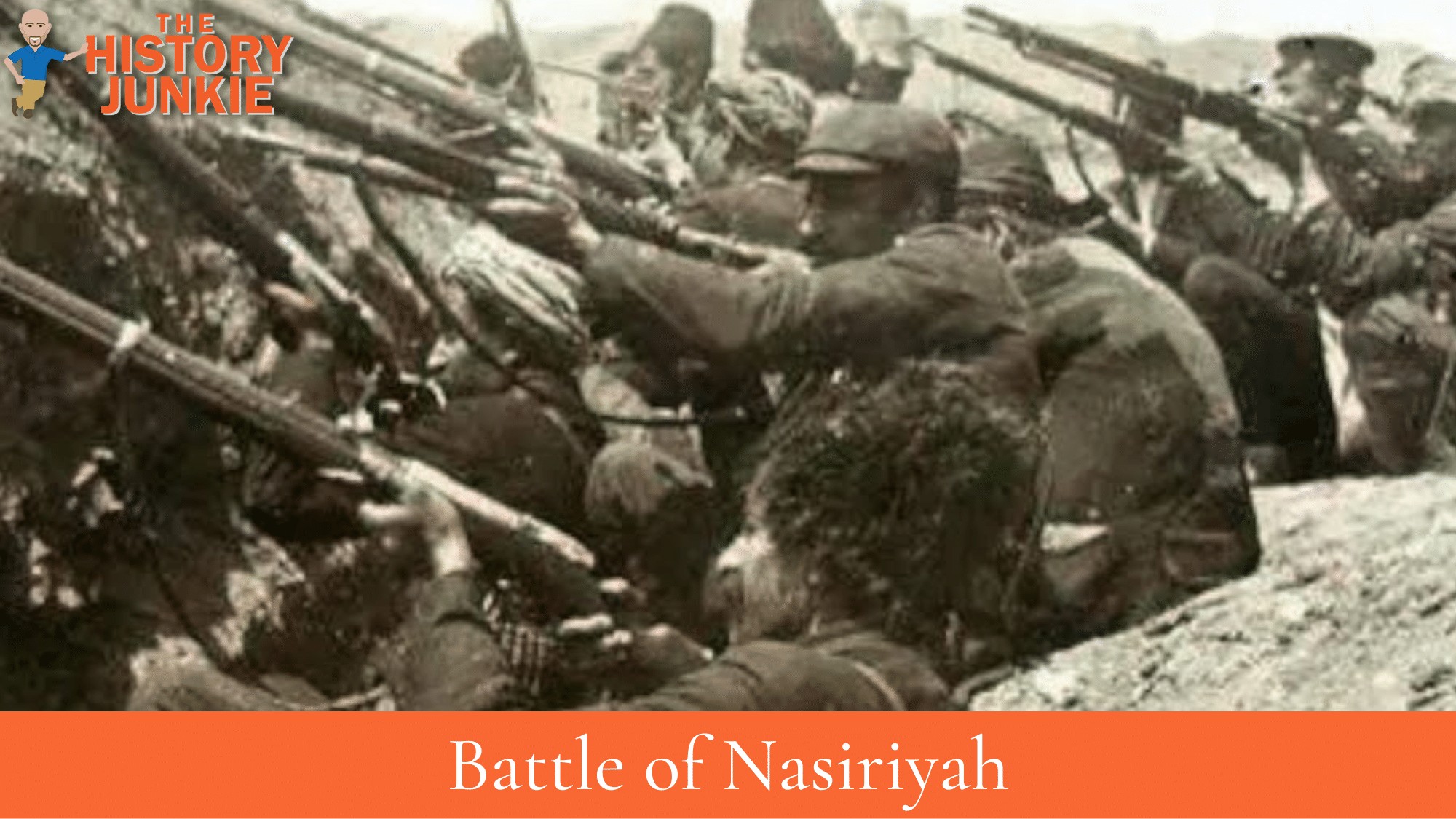After capturing Amara in early June 1915, British Commander-in-Chief Sir John Nixon launched a second offensive to extend British influence over southern Mesopotamia. The Battle of Nasiriyah is what it became known as.

The British had so far enjoyed a uniformly impressive campaign in Mesopotamia. Basra, which was now the British headquarters, had fallen in November 1914, shortly after Turkey entered World War I.
Jump to:
The British forces continued to push back the Turkish forces up the Tigris River, capturing Shaiba the following month and Qurna in April 1915.
However, this rapid succession of victories masked a number of critical weaknesses in the British position. The forces were desperately ill-equipped and short of medical supplies, but Nixon and Sir Charles Townshend still regarded the Ottoman ability to conduct war with contempt.
Background
They were complacent that further success could be achieved, even though their supply lines were becoming increasingly stretched.
Nixon instructed George Gorringe and the 30th Brigade to push on and capture the main Turkish supply base at Nasiriyeh, which was located on the inundated banks of the River Euphrates.
The Anglo-Indian force attacked the Turkish garrison on June 27, 1915, in the intense heat while dealing with many mosquitos.
Nasiriyeh was situated 70 miles west of Qurna and was surrounded by floods. The plains were also inhabited by up to 20,000 aggressive Budhoos tribes who were hostile to both the British and the Turks.
The Battle
The British forces quickly captured the port of Suk-es-Sheyukh without firing a shot. However, 6 miles from Nasiriyeh, they encountered a Turkish force.
Unable to progress by the river, the British were forced to move on foot along the riverbank. Gorringe's force dug in a mile or so ahead of the Turks, awaiting reinforcements.
Gorringe then launched an abortive attack on a Turkish outpost on the left bank but was forced to withdraw after being ambushed by Budhoos tribesmen.
Gorringe's men were now wilting in the searing heat and from disease, and more than half of them had fallen ill.
After a heavy bombardment, the British and Turkish forces clashed at dawn on July 24, 1915. Each side had around 5,000 troops in the field. With the support of the Royal Navy, the British infantry stormed and secured the Turkish positions.
The combination of infantry and gunboat support was effective in dispersing Turkish opposition. Nasiriyeh soon fell, and its Turkish defenders retreated to Kut.
Aftermath
Casualties were once again high. The British lost 500 men in battle alone, although many more died from exhaustion and disease.
The Turkish army suffered heavier casualties: 500 dead plus a further 1,000 wounded, along with 1,000 men taken prisoner.
The British had once again experienced success on the battlefield. Sir John Nixon turned his thoughts increasingly to the capture of Baghdad itself.
He was not dissuaded from continuing his advance, even though the British supply lines were in a parlous state and medical supplies were lacking.
